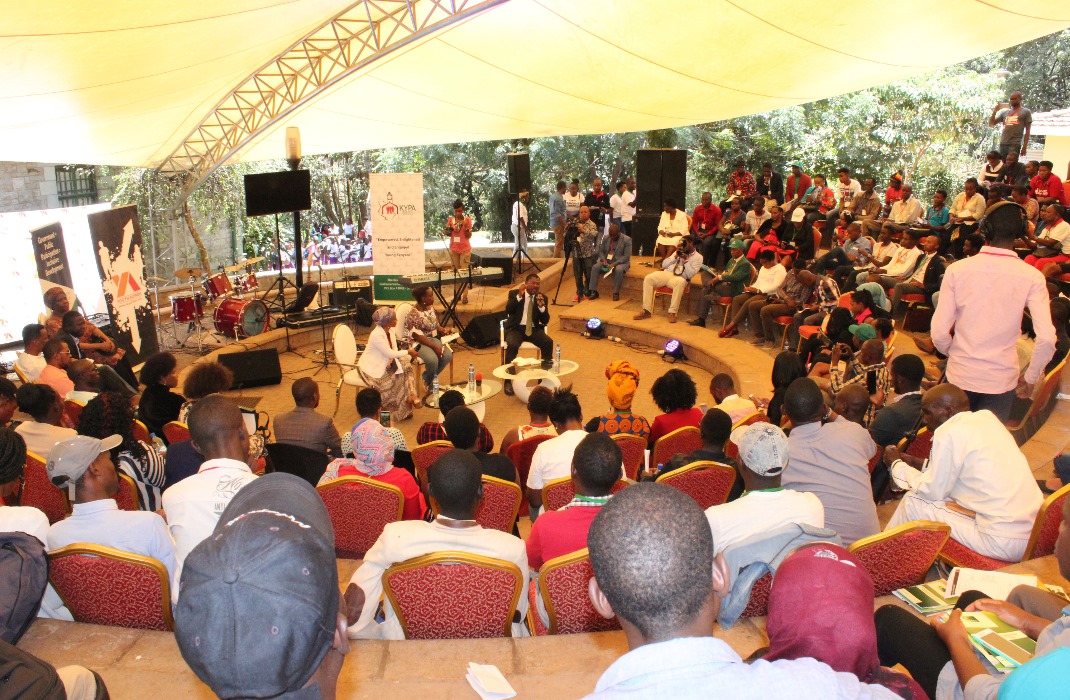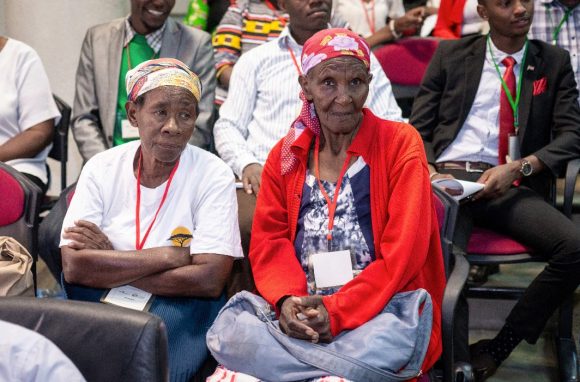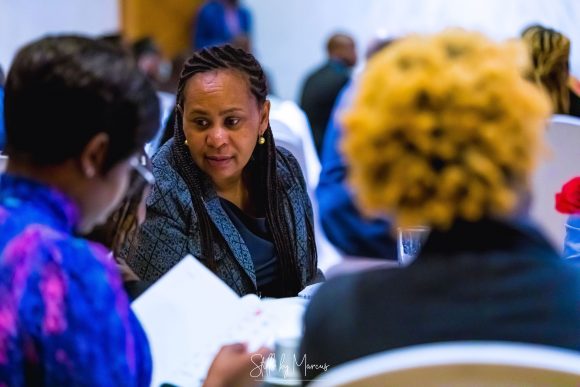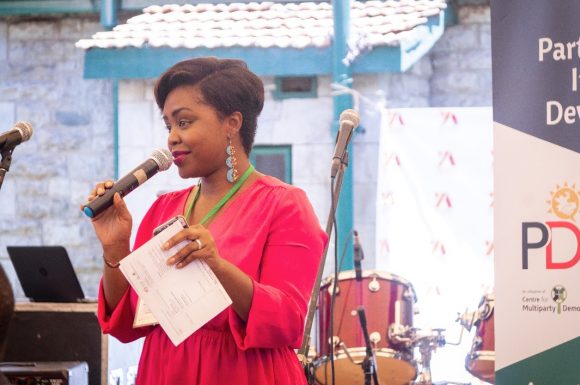
Kenya is in the midst of an important political process. Nearly two years ago, the famous handshake between President Uhuru Kenyatta and Opposition leader Raila Odinga removed a great deal of the tension that marked the aftermath of the 2017 repeat elections.
Since then, the country has focused on fostering stability and tackling corruption. This process is among the greatest challenges since the country became independent in 1963. And it’s not one that political leaders can face alone.
If development in Kenya is to be sustainable and truly respond to people’s needs, then the people themselves must play a key role. It is crucial that citizens of Kenya are involved in the process, have access to information and know that their voices are heard by politicians.

The People Dialogue Festival
That’s why we’re supporting our partner the Centre for Multiparty Democracy – Kenya (CMD-Kenya) as they team up with organizations from across the country to organize the People Dialogue Festival (PDF).
Highlights from the first PDF, held in 2019.
The Festival is the second of its kind and will take place on 5-7 March. It will bring together citizens and politicians from all parts of society. Kenya’s president and opposition leader will be joined by trade unions, religious leaders, academics, students, women’s groups, and countless ordinary voters from across the public and private sector.
Through a series of interactive and structured conversations on a range of governance, social and economic issues, citizens will have a say in their country’s democratization process.

In addition to bridging the gap between people and their politicians, the Festival also stems from a belief that real solutions must come collectively from all parts of society and all political ideologies. As such, this alternative space for dialogue is proud to involve speakers from across the political spectrum in Kenya.
By bringing people with very different viewpoints together in dialogue, PDF aims to further cement stability and reconciliation in Kenya.

The programme
The agenda for the three-day Festival covers a host of issues designed to ask key questions for Kenya’s sustainable development. The main topics will be:
Reforms in governance: A key to success of Kenyans
How is Kenya’s governance reform momentum going to translate into concrete solutions to a series of long-standing issues that have arrested Kenya’s democratic development, economic progress and security?
Inclusion and Democracy
Is Kenya’s democratic landscape appropriate to the country’s diverse populations? What must be done? By who? By when?
MP Dennitah Ghati urges people living with disabilities to attend PDF.
Sustainable development – The nexus between local and international development
Participants will interact with high ranking policy-makers and implementers as they give their take on the Sustainable Development Goals (SDGs).
Young people in democracy: What they know and how they engage
Kenya’s youth discuss their unique diversity and how they are engaging government. What is their position and is their voice heard? Are they meaningfully engaged? How do they sustain their engagement in political process?
Roy Sasaka Telawa, CEO of Kenya’s National Youth Council, urges young people to participate in PDF.
Taking integrity to the people
What does every Kenyan need to do to stop the loss of colossal amounts of money through corruption? This panel and plenary discussion will include key government agencies, private sector, CSOs, FBOs and the general public.
Discipline: How to bring political decisions back to political parties?
Why are politicians struggling with party discipline? Must politics be a team sport? Are Parliamentary Caucuses engaged in free and frank discussion on current issues of the day? Are internal dispute resolution mechanisms sufficiently democratic? What effect does lack of discipline have on trust in political parties?
The Scorecard – Appraising the performance of legislators
Is there enough vigour in the way the opposition carry out their oversight role? How can Kenya continue holding government to account?
Caroline Gaita, Director of Mzalendo, NIMD’s other partner in Kenya, gives a flavour of her organization’s sessions.
Has devolution delivered on its promise for inclusive development?
Is devolution in Kenya working? Is it productive, effective and efficient in service delivery? Is it inclusive? Are the citizens more informed about their rights? Have checks and balances improved?
